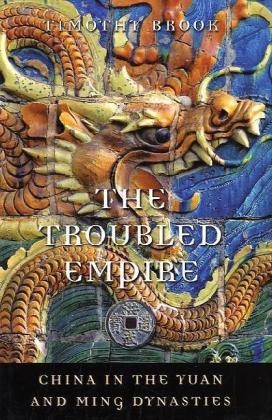Read more
Klappentext Explores the history of China between the Mongol reunification of China in 1279 under the Yuan dynasty and the Manchu invasion four centuries later, explaining how climate changes profoundly affected the empire during this period.The Mongol takeover in the 1270s changed the course of Chinese history. What China had been before its reunification as the Yuan dynasty in 1279 was no longer what it would be in the future. Four centuries later, another wave of steppe invaders replaced the Ming dynasty. This title explores what happened to China between these two invasions.
List of contents
Contents Introduction 1. Dragon Spotting 2. Scale 3. The Nine Sloughs 4. Khan and Emperor 5. Economy and Ecology 6. Families 7. Beliefs 8. The Business of Things 9. The South China Sea 10. Collapse Conclusion Temperature and Precipitation Extremes The Nine Sloughs Succession of Emperors Pronunciation Guid Notes Bibliography Acknowledgments Index
Report
A broad and well-written overview of Chinese history from the thirteenth to the seventeenth century. Brook uses stories and anecdotes to illuminate historical trends with grace and skill. For those interested in Chinese history, and for comparative historians, this is a very useful book.
-- Peter Ditmanson, University of Oxford
Brook has given a readers a fast-paced, intriguing account of the Yuan and Ming dynasties that will be read and enjoyed for many years to come.
-- David D. Buck Canadian Journal of History
Brook's ecological approach to China is both original and timely: for also China's rulers of today are faced with widespread social tension deriving from environmental calamity and natural catastrophe.
-- Tjalling Halbertsma Journal of Asian History
One of those rare works that appeal to both academic and general readers. Its readable prose and intriguing storytelling, coupled with the emphasis on total history, make it more accessible to students at different levels... The Troubled Empire is an outstanding macro study of the Yuan-Ming dynasties by a leading authority on Chinese history.
-- Wensheng Wang Journal of World History

